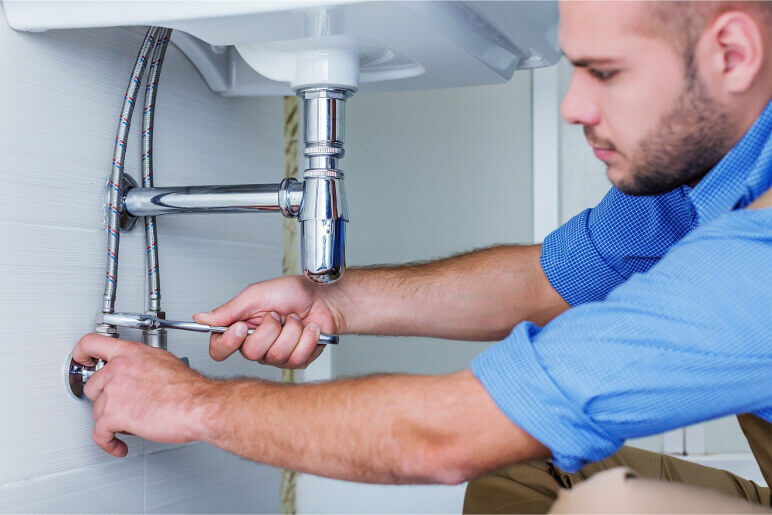How to Maintain Your Plumbing System Year-Round
Your home’s plumbing system is one of the most essential and hardworking parts of your household. From your morning shower to your nightly dishwashing routine, plumbing keeps things flowing smoothly. But many homeowners don’t think about their pipes until something goes wrong—an approach that can lead to costly and inconvenient repairs. The good news? With a little preventive care, you can maintain your plumbing system year-round and avoid emergencies.
In this post, we’ll walk you through seasonal plumbing maintenance tips, common trouble spots to watch, and practical ways to keep your water flowing efficiently all year long.

Spring: Fresh Start for Your Plumbing
As the snow melts and temperatures rise, spring is a great time to assess any damage caused by winter.
Check for Leaks: Inspect all exposed pipes in your basement, crawl space, and under sinks. Look for moisture or corrosion that might indicate a slow leak.
Test Outdoor Faucets: If outdoor spigots or irrigation systems froze during winter, they may have cracked. Turn them on and look for reduced pressure or visible water leaks.
Clear Gutters and Drains: While not directly part of your interior plumbing, clogged gutters can lead to foundation leaks. Ensure all exterior drainage is flowing away from your house.
Inspect Your Water Heater: Flush the tank to remove sediment that can reduce efficiency and lifespan. Look for rust-colored water or strange noises when in use.
Summer: Keep Things Flowing During Peak Usage
Summer typically means more guests, more outdoor water use, and more wear on your plumbing system.
Inspect Washing Machine Hoses: With more laundry being done in warmer months, ensure the hoses are in good condition. Replace any that are cracked or bulging.
Protect Against Sewer Line Backups: Tree roots grow aggressively in summer and can invade your sewer line. If your drains are slow, consider scheduling a professional inspection.
Water Conservation Checks: Install water-saving devices like low-flow showerheads and faucet aerators. Not only does this reduce your water bill, but it also eases the strain on your plumbing.
Sprinkler System Audit: Check for broken or misaligned sprinkler heads. A leaky system can waste gallons of water daily and affect underground plumbing.
Fall: Prepare for the Cold Ahead
Fall is the perfect season to prepare your plumbing system for the cold months that lie ahead.
Drain and Store Outdoor Hoses: Disconnect and store garden hoses to prevent freezing. Shut off water to outdoor spigots and use insulated covers.
Insulate Pipes: Pipes in unheated areas like garages, attics, or basements are vulnerable to freezing. Use foam pipe insulation to protect them.
Test the Sump Pump: Heavy autumn rains can cause basement flooding. Pour water into your sump pit to ensure it activates properly and discharges.
Service Your Water Heater: Colder weather means your heater works harder. Make sure it’s in top shape and consider increasing insulation around the unit.
Winter: Defend Against Freezing Temperatures
Winter is the most demanding season for your plumbing. Preventative action now can help avoid frozen pipes and expensive damage.
Keep a Trickle Flow: On extremely cold nights, let faucets connected to exposed pipes drip slightly. Moving water is less likely to freeze.
Open Cabinet Doors: Allow warm air to circulate around pipes under sinks, especially those on exterior walls.
Know Your Main Shut-Off Valve: In case of a pipe burst, shutting off your home’s water quickly can prevent extensive damage. Make sure all household members know where it is.
Clear Snow From Vents: Ensure that plumbing vents on your roof aren’t blocked by snow or ice, as this can cause drainage and pressure issues.
General Year-Round Plumbing Tips
Regardless of the season, there are some best practices that apply throughout the year.
Avoid Chemical Drain Cleaners: While they may offer a quick fix, they can damage your pipes over time. Use a drain snake or natural alternatives like baking soda and vinegar.
Watch What You Flush: Toilets are not trash cans. Only flush toilet paper and human waste. Feminine hygiene products, wipes (even “flushable” ones), and paper towels can cause clogs.
Monitor Water Pressure: High water pressure might feel great, but it can strain your plumbing system. Install a pressure regulator to maintain safe levels (typically 40–60 PSI).

Schedule Annual Plumbing Inspections: A licensed plumber can catch small issues before they become major problems. Think of it as a health check-up for your home’s pipes.
Your home’s plumbing system quietly supports your daily life. With seasonal maintenance and smart habits, you can protect this crucial infrastructure, reduce water waste, and avoid the stress of emergency repairs. Investing just a little time and attention into your plumbing system year-round pays off in lower utility bills, better water efficiency, and peace of mind.
If you’re unsure where to start, consider hiring a professional plumber to perform a seasonal inspection. A trained eye can identify hidden issues and help you create a maintenance schedule tailored to your home.